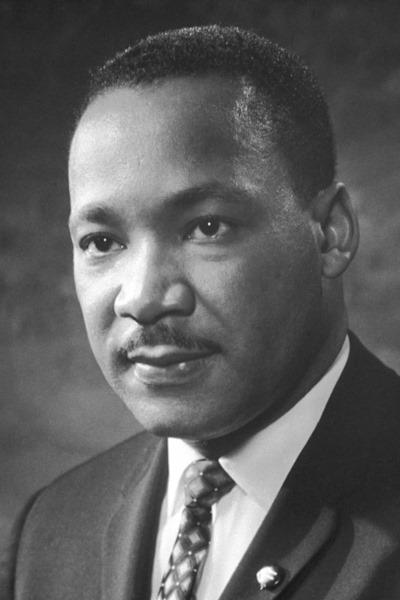In honor of Martin Luther King Day, on Monday, here is a selection from my book, GENOCIDE: The Shameful, Unspoken History Of Crimes Against Humanity In The United States.
---
Martin Luther King Jr. was born on Jan. 15, 1929 in Atlanta, Georgia. He was educated during the time of segregated public schools, graduating at the age of 15 from high school. While at Morehouse College in Atlanta, King studied law and medicine, receiving a BA degree in 1948. It was then on to Pennsylvania to study theology at Crozer Theological Seminary. There he was elected president of the primarily White senior class. In 1951, he received a Bachelor of Divinity degree from Crozer, prompting him to pursue graduate studies at Boston University. In Boston, he received his doctorate in 1953 and a degree in systematic theology in 1955.
It was in Boston where King met a young student from New England Conservatory of Music named Coretta Scott. They married in 1953 and had four children.
Returning to Montgomery, Al., King became pastor of the Dexter Avenue Baptist Church, while continuing to advocate for civil rights and equality for all Black people. He believed in non-violent, peaceful protests. King had become a member of the executive committee of the National Association for the Advancement of Colored People (NAACP).
Rosa Parks, a secretary for the local NAACP chapter, had refused to give up her bus seat in Montgomery to a White person on Dec. 1, 1955. While that refusal got her arrested, activists were busy organizing a bus boycott. The Montgomery bus boycott lasted more than 380 days, placing economic strains on both business owners and the bus system. During this time of boycott, King was arrested, his home firebombed in Jan., 1956 and he had become a target for White supremacists. On Dec. 21, 1956, the Supreme Court declared laws requiring segregated bussing as unconstitutional.
Between the years 1957 and 1968, King travelled around the country and the world, speaking about civil rights, civil disobedience and nonviolent protest. He lectured more than twenty-five hundred times, meeting with activists, political and religious leaders. In 1957, King and other civil rights activists, founded the Southern Christian Leadership Conference (SCLC). This group is committed to gaining full equality for Black people through nonviolent protest.
In 1958, King survived an assassination attempt. On Sept. 20, he was signing books at a department store in Harlem when a woman named Izola Ware Curry asked if he was indeed Martin Luther King. When he answered in the affirmative, Curry proceeded to stab him in the chest with a letter opener. The attack left King even more determined to advocate for nonviolence, stating, “The experience of these last few days has deepened my faith in the relevance of the spirit of nonviolence, if necessary social change is peacefully to take place.”
Curry, eventually diagnosed with paranoid schizophrenia, died in 2015, after having spent the rest of her life going from various psychiatric hospitals, residential care facilities and nursing homes.
In April 1963, King led a large-scale protest in Birmingham, Al., which led to his arrest. It was while he was in jail that he wrote his “Letter from a Birmingham Jail,” a civil rights manifesto. Today, this manifesto of his philosophy and strategies is required reading at many universities worldwide. In addition to organizing drives in Alabama to register Blacks to vote, he led the peaceful 1963 March on Washington. It was here he gave his famous “I Have a Dream” speech before a crowd of 250,000 people. That same year King was named Time magazine’s “Man of the Year.” In 1964, at thirty-five years of age, he received the Nobel Peace Prize, the youngest man at that time to have done so. He gave the prize money, ($54,123) to advance the civil rights movement he so passionately believed in.
Working with fellow civil rights and religious groups, King helped in the organization of the March on Washington for Jobs and Freedom. This was a non-violent political rally showcasing the continuous inequalities Black Americans faced nationwide. The event was attended by roughly two hundred thousand to three hundred thousand people and is considered to have played a significant part in the passing of the Civil Rights Act of 1964. In Aug., 1965, the Voting Rights Act was passed, assuring the right to vote to all Black Americans. The intention of this bill was to prevail over legal barriers at state and local levels that were preventing Black Americans from exercising their right to vote, which was guaranteed to them by the Fifteenth Amendment to the Constitution in 1870. It was signed into law by Pres. Lyndon Johnson.
Martin Luther King Jr. was assassinated on April 4, 1968. He was in Memphis, Tenn. to support a strike by sanitation employees, when he was shot and killed as he stood on the balcony of a motel. Soon after his death, Pres. Johnson declared a national day of mourning. And so ended to soon, the life of a man who sought by peaceful protest only, equal human rights for Black Americans, those who were disadvantaged economically and victims of injustice.
In 1983, Pres. Ronald Reagan signed a bill declaring every third Monday in January as Martin Luther King Day. This came about after many years of campaigning by his widow, Coretta Scott King; Congressional members; and other civil rights activists. The federal holiday was first celebrated on January 20, 1986.
“Freedom is never voluntarily given by the oppressor; it must be demanded by the oppressed.”
“Our lives begin to end the day we become silent about things that matter.”
-Martin Luther King, Jr.

